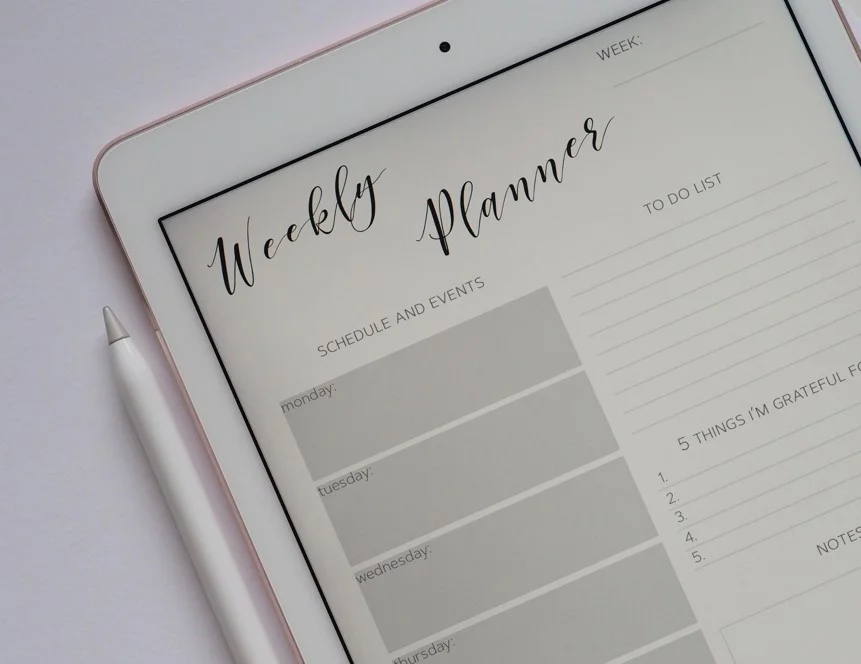An increase in the desire for working hours that are flexible, particularly as the majority of freelancing work can typically be completed from home without the constraints of reporting to the office.
Despite its increasing popularity, the freelancing economy comes with dangers that could hurt independent contractors, particularly those that relate to pay and employment rights. This could lead to greater expansion in the freelance industry and a change in how firms hire, allowing them to employ more cost-effective techniques and attract additional employees from this sector without incurring the overhead expenses typically related to traditional employment. And with the changing of the preferred work environment, companies are also adopting work setups similar to freelancers, and these jobs can be seen in the real estate industry where real estate agents can sell properties for sale while benefiting the work setting that is similar to freelancers.
What Does the Generation Today Expect They Can Receive as Their Employee Benefits?
Flexible work schedules can be anything in addition to the standard 9 to 5 job, which is usually five days a week. Its adaptability may be related to the work schedule, hours, or location. In summary, flexible schedules give workers the freedom to decide when, where, and how they will do their work. During the Covid-19 pandemic, workplace flexibility became essential. It then continued to increase enormously going forward. Most significantly, we have all the necessary equipment and technology to make it possible.
There are a lot of benefits that we can get from freelance work. Gen Z workers are noticeably less eager to work for a minimum wage as compared to other generations. It makes sense, considering the rapid rate of inflation and the rising living expenses.
Employers, whether they employ Gen Zers or not, they need to understand how to offer competitive pay and the best employee benefits to their staff. Admit it: 10 years ago a monthly entry-level pay of P16,000 was inadequate given the situation.
Various Types of Flexible Schedules for Work/ Best Employee Benefits
A great benefits package is one of the factors that the new generation of job seekers is looking for, next are employee perks, and good salaried employees that fit the load of their work. But in terms of work environment, flexible work hours, work-life balance, and the ability to do remote work are some of the few things that Gen Z workers are looking for.

Flexible Hours
Employees can set their own schedules and work hours under the flextime concept. They are free to choose the hours they work as long as they meet their weekly hourly target, which for full-time employees is typically 40 hours.
Flexibility in working hours typically depends on the demands of the job, the business’s operations within the industry, and the preferences or requirements of the employee. Depending on the business’s demands and the industry’s overall makeup, some adopt flexible hours. Despite the fact that some businesses permit extremely flexible working hours, others are more limiting and only permit flexible hours during business hours.
The following professions and businesses may provide flexible hours: Jobs in the technical field include web developer, project manager, and graphic artist, for media and communication, including copyediting, translating, blogging, marketing consulting, and public affairs. Online teaching positions include tutors, substitute teachers, and speech and language therapists.
Work-life balance

One of the most vital elements of a job today may be the work-life balance. Employees frequently regard it as being even more important than their real compensation. Employees that have a strong work-life balance have time to devote to their own lives, family time, and other enjoyable pursuits.
A popular definition of work-life balance is the ratio of time spent working to time spent with family, friends, or engaging in personal hobbies and passions. You won’t have as much time or energy to devote to your other commitments or passions when work requires more of you.
Many people strive to strike a better balance between their personal and professional lives so that work does not monopolize their time. The phrase itself, though, might be deceptive because our personal and professional lives aren’t usually kept apart.
Why a healthy work-life balance is essential?
Everybody’s definition of work-life balance and work-life integration is varied due to the individual characteristics of each of our lives and the shifting demands of our obligations. You are constantly negotiating where and how you will spend your time. You get to choose your priorities, whether they are connected to your career and personal life, as you work toward achieving improved work-life balance.
Your overall health, including your psychological, emotional, and mental well-being, may be enhanced by improving your work-life balance. Long work hours have been linked to major health problems like “poor sleep, unhappiness, excessive drinking, diabetes, memory problems, and cardiovascular disease,” according to studies. Sadly, as these situations develop, they might aggravate our problems with work-life balance, which can result in burnout and other unfavorable effects.
In order to raise overall productivity and the bottom line of companies, it is important to strike a healthy balance between work and personal life. This can aid in stress reduction and maintain better well-being.
Remote Work

Before the coronavirus epidemic made it necessary for many people to work from home, remote work also known as the capacity to work from anywhere, at any time was a full-fledged worldwide work trend.
Not only do individuals gain from remote work, but employers are beginning to see it as a crucial component of attracting and keeping top people, maintaining competitiveness in their industry, and even cutting expenses.
For many employees, establishing a healthy work-life balance is of utmost importance. The secret to feeling more joyful and productive at work has been the capacity to strike a balance between these two worlds. Employees can improve their work-life balance and add hours to their days by saving the time they would have spent on a lengthy commute.
Additionally, reduced office expenses are another benefit for a company. Companies can reduce their real estate footprint and use workspace more effectively when there are fewer people working there.
By lowering stress and minimizing exposure to potentially ill coworkers, remote work can improve the general well-being of employees. There is no commute, lunch rush, or long hours spent in the workplace away from family or friends. Employers shouldn’t forego a wellness program, though because people with flexible schedules need access to employee wellness programs like gym membership just as much.
What is employee wellness in a healthful workforce/workplace?

Any action intended to promote better health at work and/ or to enhance health outcomes is included in an employee wellness program. These programs frequently incorporate health examinations, rewards, treatments to modify behavior, fitness classes, support networks, or contests.
Vitality, joy, and prosperity are the experiences that make up well-being. It entails enjoying a high level of life happiness, good mental health, and a sense of meaning or purpose. Although there isn’t an agreement on a single definition, overall well-being can be summed up as having a positive outlook on life and living well.
Employees may receive a wellness stipend, or wellness allowance, as a taxable benefit to cover expenses related to their physical or mental health. A one-time or recurring health stipend that is paid out on a monthly, quarterly, or annual basis can be made available.
Different stages of employee wellness

The most important and obvious factor is physical health. The physical needs of our bodies must be understood in order to manage chronic illnesses; this is a key component of employee wellness initiatives. This includes a focus on physical activity, regular sleep patterns, and healthy meal options.
Next would be the idea of intellectual well-being is best understood when considering personal development as a major factor. A sense of achievement and increased confidence come from expanding one’s skill set, which gives us the drive to take on new challenges and acquire fresh knowledge.
When a person is capable of handling life’s obstacles because they can manage their emotions properly, that is a nice approach to position the notion of emotional well-being. Therefore, rather than the other way around, they are in charge of their emotions.
Changing environment. Because your inner self can be greatly impacted by where you are. You’ll relieve a lot of mental stress by maintaining organization in your house, automobile, and workplace.
Flexible schedule

Employees stand to gain a lot of advantages from flexible work arrangements. The ability to conveniently balance work, family, and personal duties is one that many employees mention first. Flexible scheduling enables employees to work remotely and allows them to change the days and hours they spend in the office. Those who commute to a home office naturally escape the congestion and pressures of commuting during rush hour.
Workers get a greater sense of personal control over their work environment and schedule. The question of control is one of the reasons people want to work for themselves. You may encourage the entrepreneurial spirit in your staff by letting them choose their own timetable and working environment.
Employers gain from flexible work arrangements as well. Morale and motivation, engagement, and company loyalty increase when some control over work schedules is given up. By enabling employees to schedule their work hours around personal and family commitments, the option also lowers the turnover of employees, attendance, and tardiness. As people are able to work when they achieve the most, feel the most refreshed, and like their jobs the most, the flow of tasks and duties may rise.
The number of hours and costs for outside daycare may reduce depending on the flexible work schedule selected. Because you can’t work productively while also entertaining a toddler, you must make it plain to employees that a home-based job still requires childcare for all but a small number of positions.
The importance of paid parental leave

Generous parental leave has numerous advantages that are widely known. Giving new parents paid time off to look after their newborns or recently fostered kids promote healthy growth, boosts maternal health, and strengthens the financial stability of families.
Paid medical and caregiving leave allows employees to take care of themselves and their loved ones when they are unwell or disabled, lowering their stress levels and financial insecurity. Businesses gain from paid leave because it increases employee satisfaction, productivity, and labor force participation. Where they are available, paid leave policies are well-liked.
Giving new parents paid time off to look after their infants or recently adopted kids promotes the development of the children, improves women’s health, encourages father engagement in care, and strengthens families’ financial stability. Paid medical and caregiving leave allows employees to take care of themselves and their loved ones when they are unwell or injured, reducing stress and financial uncertainty. Businesses gain from paid leave because it increases satisfaction with work and efficiency and raises participation in the workforce.
Because paid parental leave policies give nursing moms time to recuperate from childbirth and acclimate to their new parenting obligation, research demonstrates that they considerably improve maternal physical and mental health. In the first two months after giving birth, about half of women report feeling discomfort, and many go on to have more severe, sometimes fatal postpartum problems.
Different Kinds of Flexible Working Hours Jobs
It is typical to see these positions posted with flexible hours, despite the fact that many of them call for specialized training. You might not be able to work only when you want if you have a 24-hour job as a security guard, locksmith, driver, or dispatch manager. Instead, you would have flexibility outside of the conventional 9 to 5 workday.
Due in part to the fact that they may frequently be performed remotely, positions in the technology sector are among the most popular sort of professions with flexible hours. In this field, there is also a ton of freelance and contract work that covers anything from software creation to website design to client technical support.
Development in online educational technology and the popularity of remote learning are two factors that have contributed to the emergence of online education jobs with flexible hours. In other situations, like tutoring or exam prep services, it is frequently up to you to accept clients whenever you like.
Increasingly, medical procedures are being done remotely. Nurses can provide diagnoses over the phone, for instance, teleradiologists can evaluate X-rays online. More options for a flexible timetable are made available by this. You may be allowed to choose your own clientele and work hours in some professions, such as those of massage therapists, personal trainers, or home-care providers.
Related Blog: The Benefits of Hybrid Work Setup


